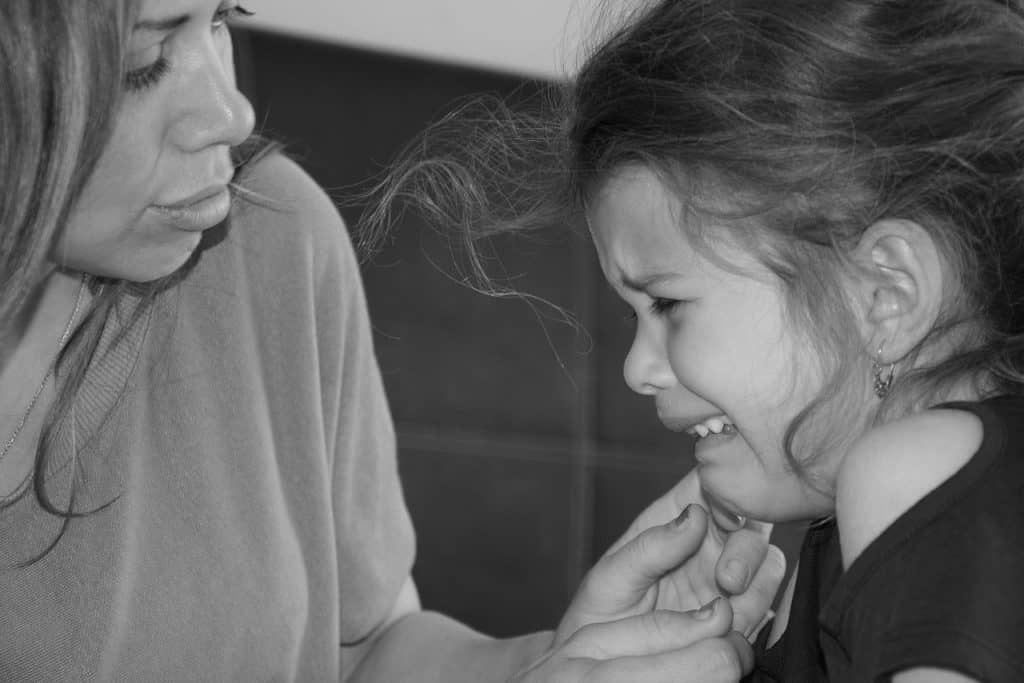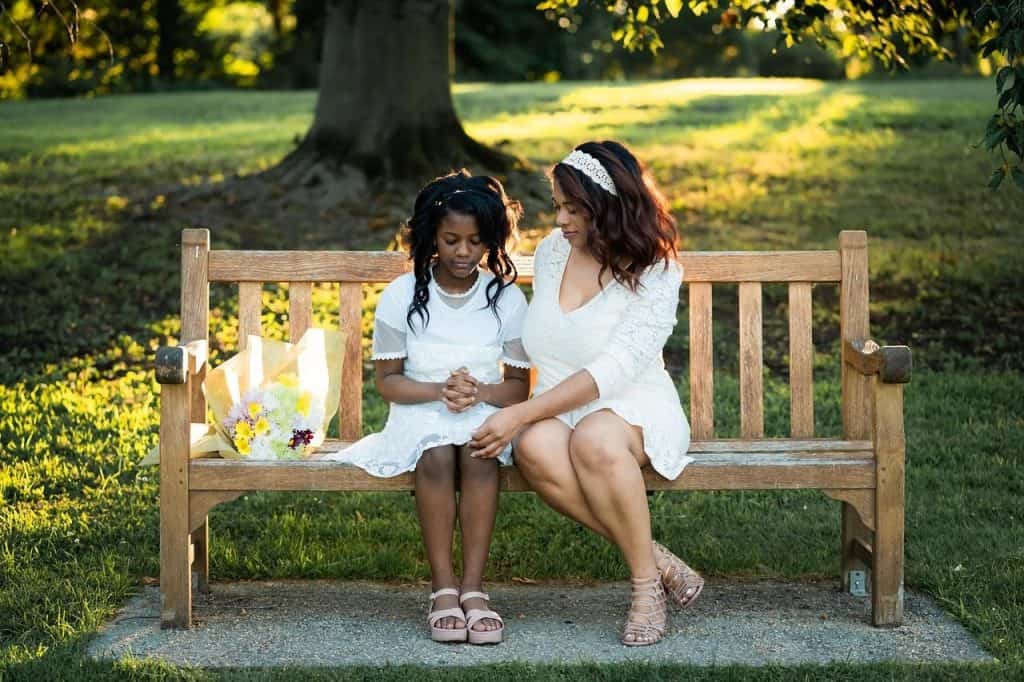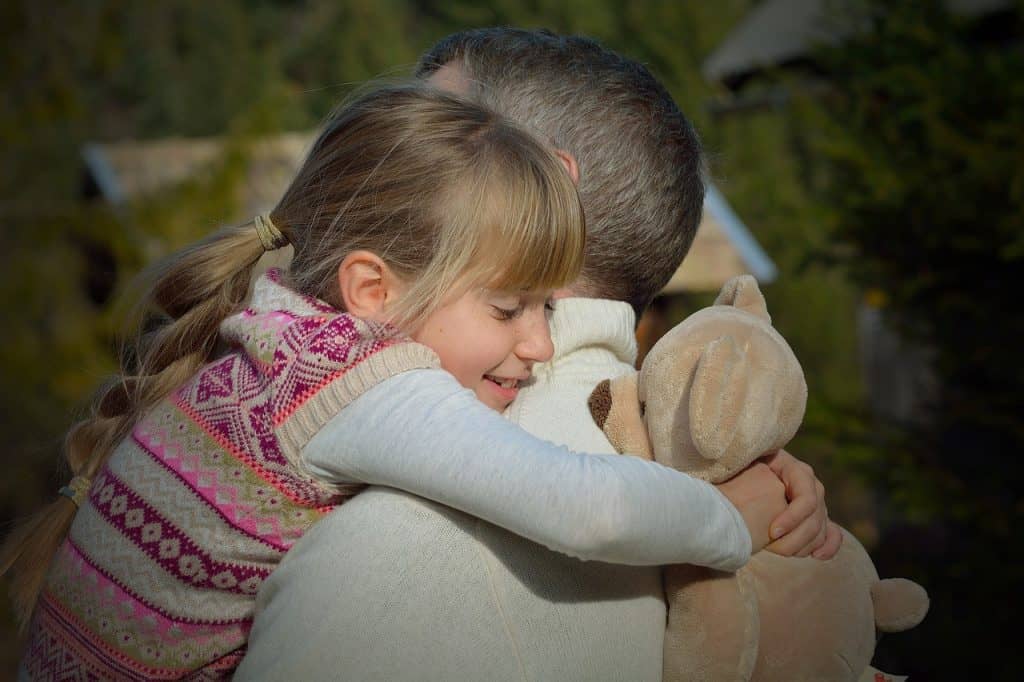Creating a deep harmonious bond between stepchildren and stepparents can be difficult for both parties. Everyone involved must make a deliberate effort to give each other space, build a friendly familial relationship, and develop honesty and trust.
As a stepparent, you might wonder if your stepchild hates you. You might’ve noticed signs, such as disrespectful or aggressive behavior. They might also avoid spending time with you, treat you like you’re invisible, or isolate you from the other family members.
How your stepchild acts towards you can be disheartening or frustrating, but remember that you’re an influential adult that plays a significant role in their life. It’s your responsibility to help them learn how to cope with these negative emotions and set clear boundaries.
How to Tell If Your Stepchild Hates You

Observing their attitude and behavior will help determine if your stepchild hates you. Pay attention to their body language, and you might notice signs signifying they have ill feelings towards you or the current situation. Below are possible indicators that can confirm your hunch.
1. They’re Disrespectful or Rude Towards You
If your stepchild has unresolved emotional issues due to your family’s situation, they might display disrespectful conduct and toxic behavior. Your stepchild will likely test your limits and push your buttons so they can push you out of the picture.
Suppose your stepchild couldn’t process their emotions regarding the significant change in the family. In that case, they might carry negative emotions, such as anger, frustration, and helplessness, deep in their heart.
Your stepchild might not know how to cope healthily, making them act impolite or discourteous around you. They might behave the same way not only towards you but other family members as well.
2. They Avoid Spending Time with You

You can tell your stepchild hates you if they avoid spending time or hanging around with you. They might see you as a threat to the family and wish for you to go away. Your presence might be causing them pain, so they choose to stay away from you.
3. They Act Aggressively Toward You
Anger is a natural human reaction, and your stepchild might still be processing their emotions. Another way to tell if your stepchild hates you is if they respond to you by behaving aggressively. You might notice severe violent outbursts, even for minor issues.
Aggression has two categories: impulsive aggression and instrumental aggression. The former classification results from the emotions one experiences at the moment. It can come from nowhere and seem uncontrollable.
On the other hand, instrumental aggression involves planning and intent to accomplish a goal. Aggression stemming from stepchildren can be impulsive or instrumental, depending on the circumstances.
Aggressive behavior can be in various forms. Verbal aggression is arguably the most common. It involves shouting, swearing, harsh language, and cruel remarks intended to cause the receiver agony and distress.
4. They Isolate You from the Rest of the Family
Another telling sign that your stepchild hates you is when they attempt to sabotage your relationship with the other family members by damaging your reputation. They might do this out of possessiveness or jealousy. Some people call this relational aggression.
Suppose they see you as an obstacle to their relationship with the rest of the family, especially their mom or dad. They might create stories to ruin your image, stir unnecessary drama, or lash out when the other family members give you attention and affection.
5. They Treat You Like You’re Invisible

If your stepchild hates you, they’ll likely act as if you’re not there. They’ll roll their eyes when you initiate conversation and make snide remarks when you show them concern. They do this as an attempt to build an impenetrable wall between the two of you.
It’s common for stepchildren to give their stepparents the cold shoulder or silent treatment to express their contempt and disapproval. They do this to let you know that your presence is insignificant, and they’ll continue to be indifferent toward you.
How to Handle a Stepchild that Hates You
1. Embrace Your New Role

You can’t handle a stepchild who dislikes you if you don’t acknowledge your new role and identity as a stepparent. The road will be rocky at best, but it helps to embrace and prepare yourself for the complexities of being a stepparent.
Regardless if you have children from a previous relationship and have parenting experience, becoming a stepparent poses new challenges. You must overcome many issues and problems, like creating a bond with a wary and uncertain child.
2. Show Them That You’re Not Replacing Their Mom or Dad

Divorce and the changes that come with it can be challenging for any child to process. Imagine living with your biological parents all your life and seeing a stranger suddenly become a parental figure.
Your stepchild’s resentment toward you might stem from their belief that you’re trying to replace their mother or father. It takes patience and effort to help them realize this isn’t the case. After all, your relationship with your stepchild is unique and complex.
Divorce, remarriage, and new families can be messy, and your responsibility is not to make it any more chaotic. You can prove to your stepchild that you’re not replacing anyone by facilitating their relationship with your biological counterpart.
Involve all parties during family gatherings, and make sure your stepchild gets relatively equal time with their mother and father. Doing so will help the child alleviate stress and pressure as they navigate the strenuous situation.
Never, in any circumstance, force your stepchild to call you ‘mom’ or ‘dad.’ Titles hold meanings, and attached to them are responsibilities you might not be ready for, so let the child decide what to call you and when.
3. Understand Their Needs

As mentioned earlier, you can tell your stepchild hates you by their indifferent behavior. This attitude is understandable among stepchildren because most feel abandoned by their biological parents after the divorce.
As they meet their stepparents, they’ll have to adapt to the new shift in their family system. You can help them navigate this situation by understanding their needs.
Your stepchild needs to feel safe. Popular media depict stepparents as evil individuals they need to compete with, so they might not feel safe in your presence. You can change this stereotype by showing them that you genuinely care for them through words and actions.
4. Give Them Space
Divorce and remarriage have an immense impact on children. As a stepparent, you can help them adjust by providing them ample time to process their emotions. Give them space, and don’t expect them to adapt to everything quickly and with ease.
Forcing your stepchild to accept you with open arms and like you will only backfire. They need to grieve over the loss of the marriage of their parents. Be patient and let them dictate the pace of the development of your relationship.
Focus on building a friendly relationship first. Doing so will help you and your stepchild get to know each other better. With patience and effort from both of you, your connection will blossom and flourish.
5. Spend Quality Time Alone with Them

As an adult, it’s your responsibility to initiate conversation and schedule alone time with your stepchild. Discover if you share similar hobbies or interests, and try something new together if there are none.
You can set a weekly routine you and your stepchild can enjoy, like a simple breakfast at a lovely cafe every weekend, movie dates on Friday nights, or shopping once a month. The activity itself is trivial. What’s important is how you both spend quality time to deepen your bond.
6. Treat Them as Family
You’ll have more responsibilities as you enter a relationship with your new life partner and move in with their family. You’re not a babysitter but a parent. It’d be best if you don’t treat them as baggage or mere guests but as a family from the same flesh and blood.
7. Earn Their Trust

Your stepchild won’t trust you overnight. You need to earn their trust and respect, and you can do this by being honest with them. Attentively listen to them, and show them that their feelings and thoughts (both positive and negative) are valid.
Aside from practicing active listening, engage with the child. Respond to them and show them you understand. Once they realize that you value their thoughts and feelings, they’ll feel more comfortable sharing them in the future.
Don’t make promises you can’t keep, or you’ll fail to earn their trust. One mistake is what it only takes to destroy your efforts of building trust, especially if the foundations of your relationship are shaky. Whatever you do, be consistent.
8. Empathize with Them

Becoming a stepparent for adolescents, especially those ages 10 to 14, might be more challenging than dealing with younger children. Aside from going through many developmental changes at this age, they’re already familiar with a specific parenting style and household living.
Your stepchild might be overwhelmed, anxious, frustrated, or confused. You can help them by being more understanding, opening your mind, and showing empathy. When you feel they’re ready to start a conversation, encourage them to discuss their feelings and opinions.
9. Speak with Your Partner about Household Discipline
If your stepchild openly shows their dislike towards you, you won’t want to add to the problem by poking your nose somewhere you shouldn’t. Discuss the house rules with your partner, and discern when you should and shouldn’t exercise your right to participate in enforcing them.
It’ll help to discuss the house rules when all family members are present. Remember always to be calm, especially when enforcing these rules. If your stepchild negatively responds when you discipline them, empathize and validate them, but follow through with the consequence.
Navigating discipline can be very challenging as a stepparent, and you might be disheartened or frustrated. However, establishing your new role with your stepchild requires time, patience, and determination.
10. Disengage When Necessary
Arguments are inevitable if your stepchild displays resentment toward you by being disrespectful or aggressive. Usually, a parent will correct their child’s wrongdoings immediately. However, you have a unique relationship with the child, so you must choose your battles wisely.
The dynamics between you and your stepchild will constantly shift. Sometimes, you need to take a step back and disengage. Manage your expectations and look at the situation from a different perspective.
Let them be if your stepchild gives you the silent treatment or the cold shoulder. There are things you can’t fix yourself, and this is one of them. They might still need more time to process their feelings and emotions, so be patient and ignore this behavior for the time being.
Final Thoughts
If you realize that your stepchild hates you, don’t jump to conclusions and put all the blame on someone, especially yourself. After all, circumstances involving stepfamilies can be tricky and complex for everyone involved.
Discern what causes your stepchild to dislike you, and make an effort to help them see you in a positive light. When everything else fails, don’t hesitate to consult an expert in marriages and families to seek professional help and counseling.